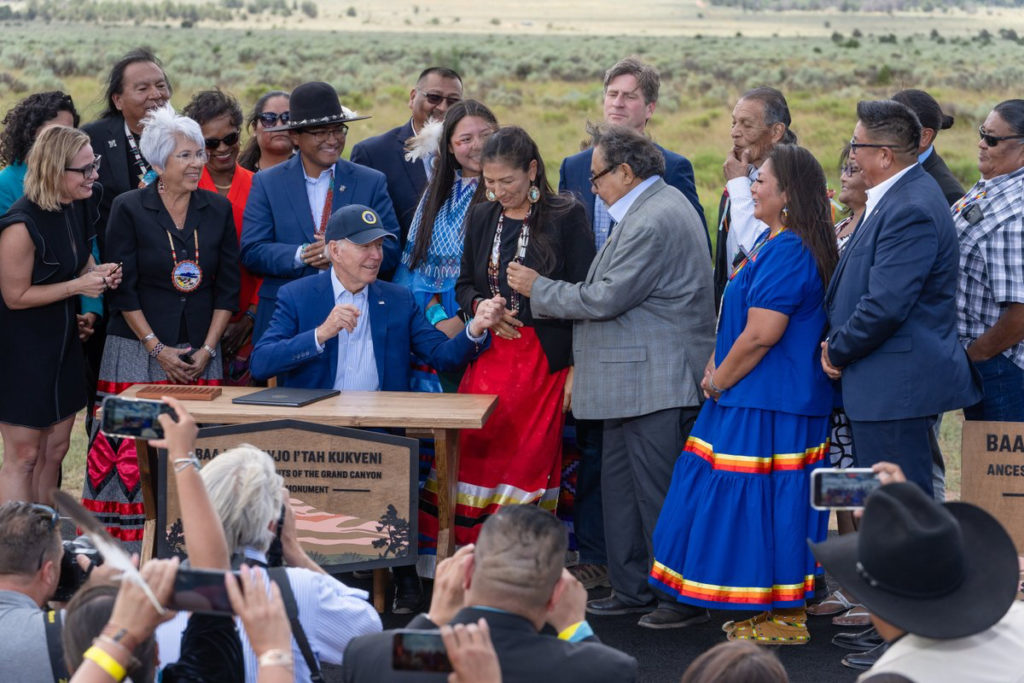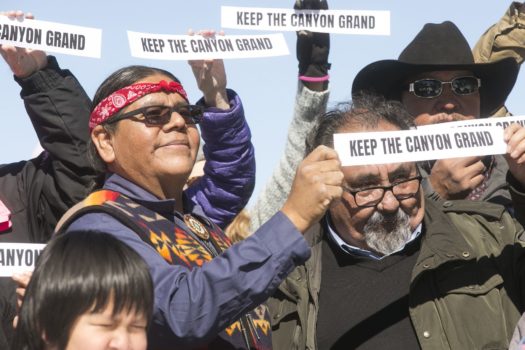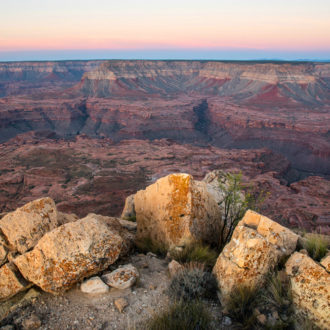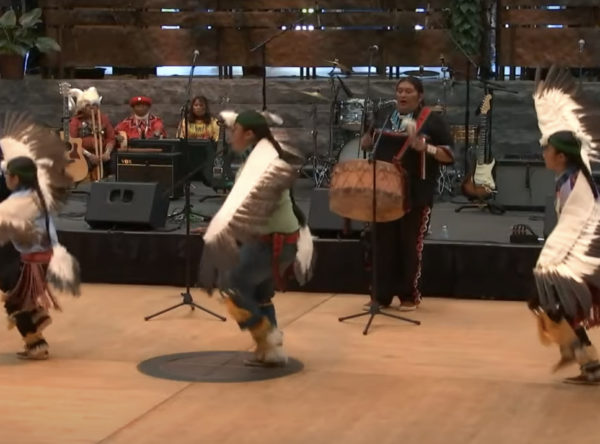take action.
click the Bigcat pawprint to thank President Biden for designating the Baaj Nwaavjo I’tah Kukveni —Ancestral Footprints of the Grand Canyon National Monument. You’ll find tools to post, share, and amplify this call to action, for the lands, waters, wildlife, and peoples of Grand Canyon!
Grand Canyon is so much more than an ‘attraction’.
It’s one of the Seven Natural Wonders, a UNESCO World Heritage site, homeland to Indigenous communities, and a vast intricate complex of unique ecosystems, all its own. Each year, the Grand Canyon draws more than 6 million visitors and generates over $900 million for the local economy. While experiencing the Grand Canyon might make you feel small and transitory, you can help to preserve the legacy of its wildness in a big way.

defend the Grand Canyon from uranium mining.
Mining interests constantly call to lift a 20-year (administrative) ban on uranium mining near the Grand Canyon, citing the need to make nuclear weapons and bolster domestic energy production. The halt was originally put into place in 2012 to allow time to conduct studies on the effects of such mining on the region. But these studies have languished, as the threats have not and the ban urgently needs permanence.
Uranium mining on the public lands surrounding Grand Canyon National Park threatens to disrupt, deplete, and pollute aquifers that feed springs and streams in the Grand Canyon. This damage poisons wildlife, fragments wildlife corridors, and industrializes iconic landscapes.
don’t mine the wild.
Uranium mining is not a new threat of unknown consequence. It represents the ongoing cumulative diminishment of biological and cultural diversity, which has historically permitted industrial exploitation of our natural and human heritage. The cost of previous uranium mining, for example, includes permanent contamination of pristine water sources for wildlife and park visitors, alongside generational damage to the health and culture of indigenous families.
In contrast, protecting the Grand Canyon’s wild lands, waters, and healthy air brings generational economic, social, and ecological benefits in place of the fleeting capital gains of mining—especially considering the Grand Canyon region holds less than 1% of known uranium reserves in the U.S. This is no place for uranium mining.
The current temporary ban protects over 1 million acres on the wild rimlands and indigenous homelands surrounding Grand Canyon National Park, from new uranium mining. Recent efforts have sought to make the moratorium on mining permanent for the Canyon’s north and south rims through the Grand Canyon Protection Act (S.387), which was introduced in the U.S. Senate in 2021 by Arizona’s senior Senator, Kyrsten Sinema (D-AZ) with Senator Mark Kelly (D-AZ) cosponsoring, had a committee hearing and markup, but ultimately was not moved forward.
Grand Canyon and the Arizona Trail are pillars of Arizona’s economy, with outdoor recreation generating $21 billion in consumer spending annually, supporting over 200,000 jobs, and sustaining rural communities. The Canyon’s watershed and the Colorado River it feeds provides life-giving water for wildlife, recreationists, and more than 40 million people in the West.
a turning point in the protection effort.
On August 8 (2023), President Joe Biden established the Baaj Nwaavjo I’tah Kukveni – Ancestral Footprints of the Grand Canyon National Monument today at an early morning Proclamation signing ceremony, in a life-affirming response to the requests of tribal leaders, and to the broad and overwhelming community/public support for the tribal proposal. The dedication marks an historic turning point in a 20-year effort by the Havasupai people, the Grand Canyon Tribal Coalition, and a supportive conservation community, to ensure permanent protections for this vulnerable and threatened landscape.
Using his executive authority granted by Congress in the Antiquities Act, the President recognized and provided enduring protection for the cultural and ecological values embraced in 1.1 million acres on the north and south rims of Grand Canyon, surrounding the existing Grand Canyon National Park. “This is a huge success–a legacy for those tribal leaders, communities and organizations who have worked for at least 20 years to protect these magnificent rimlands of the Grand Canyon,” said Kelly Burke, Executive Director of Wild Arizona, a conservation group at the forefront of supporting the tribal-led effort.
The designation is a culmination of a long regional fight against the threats to Indigenous life and critical landscapes posed by uranium mining. Lands included form an integral part of the Colorado River’s Grand Canyon watershed and comprise an area in which traditional Tribal practices, cultural knowledge, and spiritual ceremonies have taken place for millennia.
The Creator gave us a gift. And that gift is in the form of the Grand Canyon. That gift is not only to the tribal nations that have that intimate connection with it, but it’s a gift to the state of Arizona. It’s a gift to the United States. It’s a gift to the entire world. So, we do have to protect the beauty and grandeur for this area that we call home—many tribes call home. And for the Hopi Tribe, the Grand Canyon holds significant cultural and religious value for the Hopi people, which is part of our history and heritage.”
Hopi Tribe Chair Tim Nuvangyaoma
Wild Arizona thanks the Grand Canyon Tribal Coalition, diverse community leaders, outdoor businesses, elected officials, veterans, and and conservation supporters for over two decades of persistent effort to gain the enduring protection for these amazing lands as Arizona’s newest national monument.






